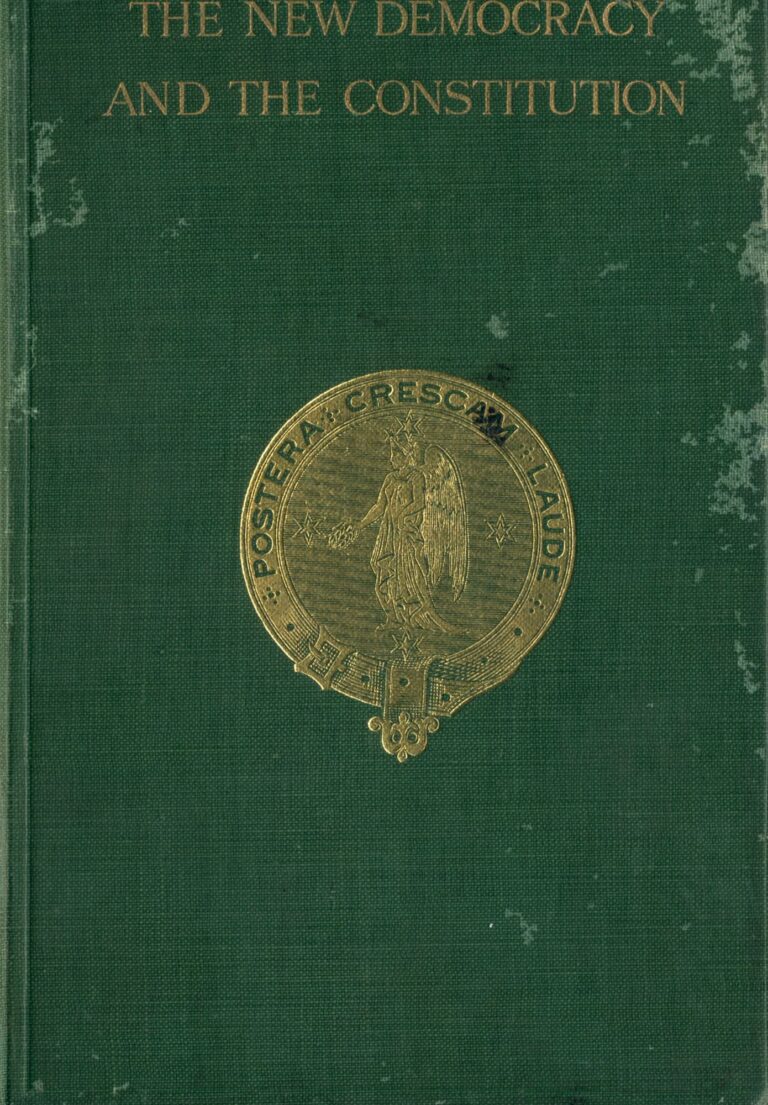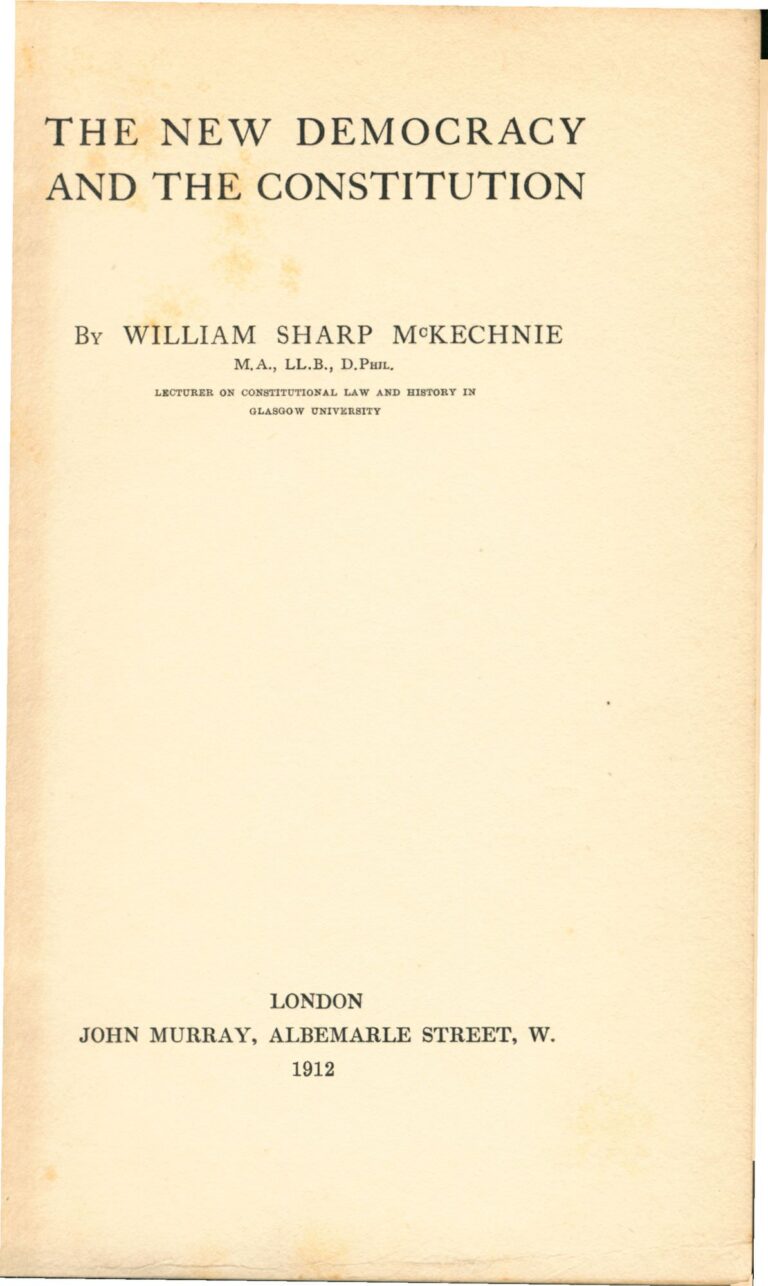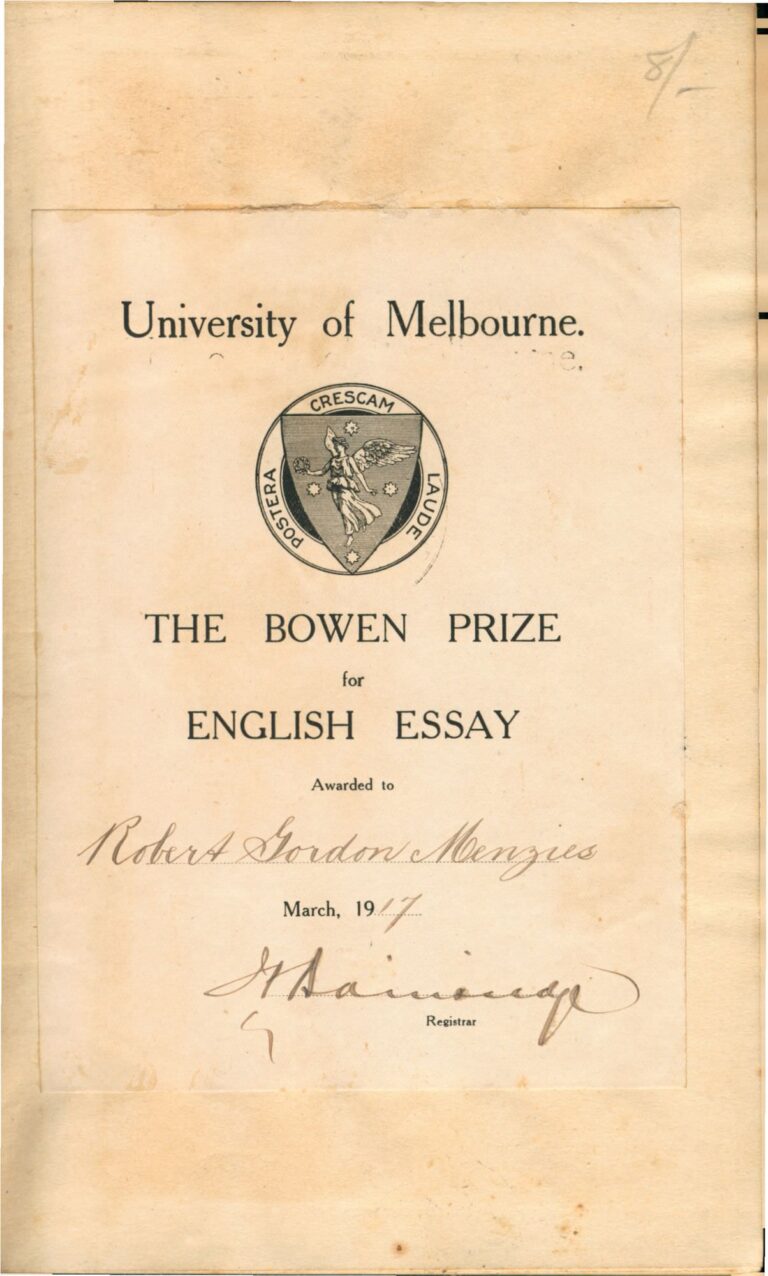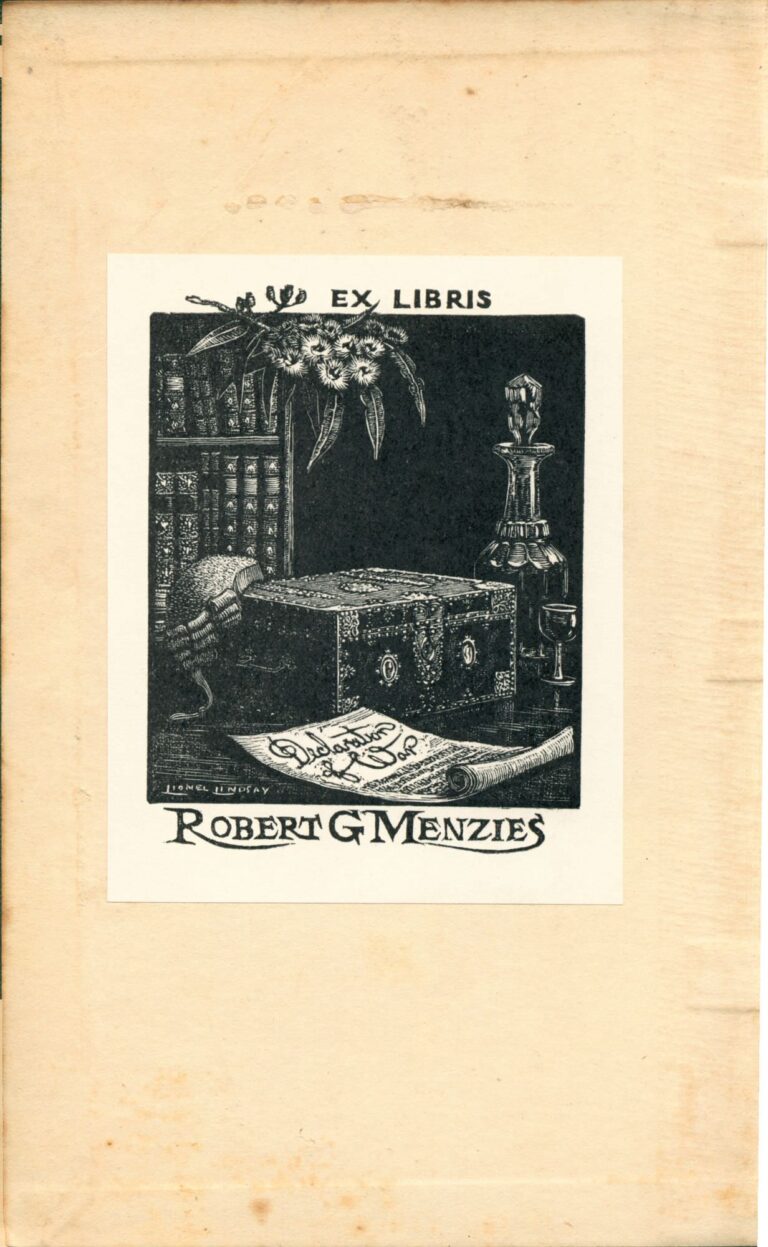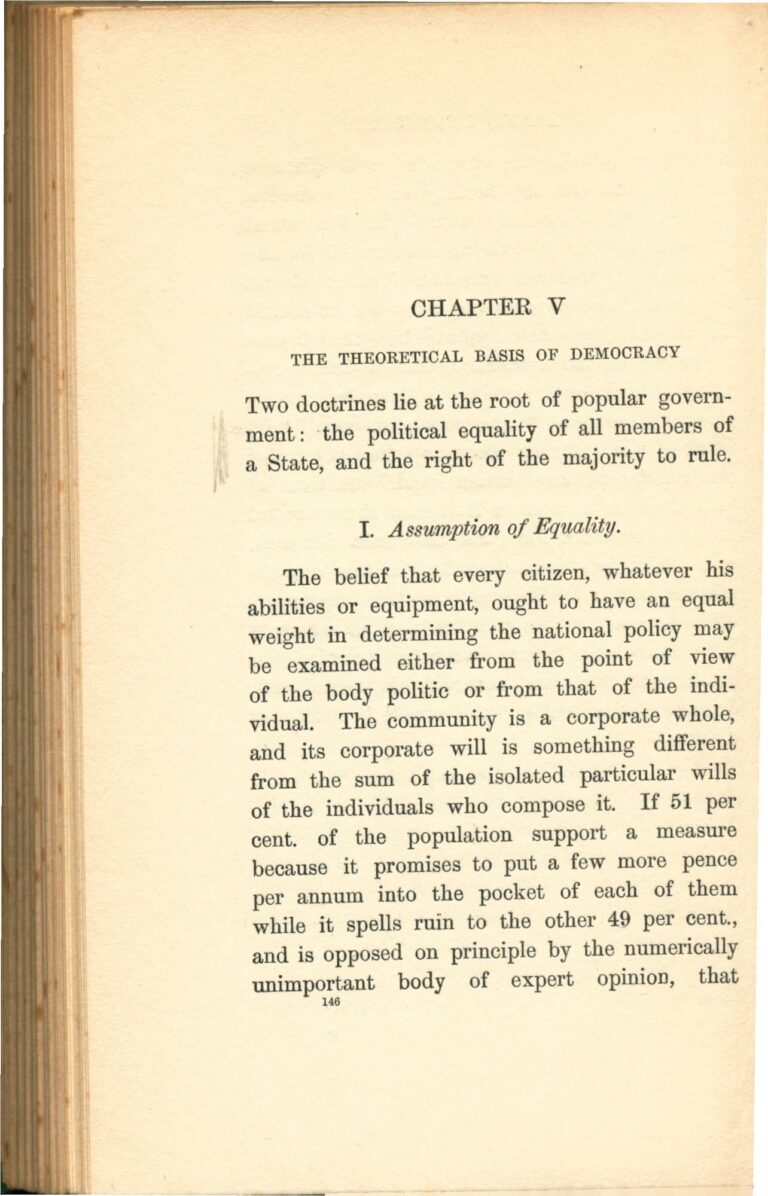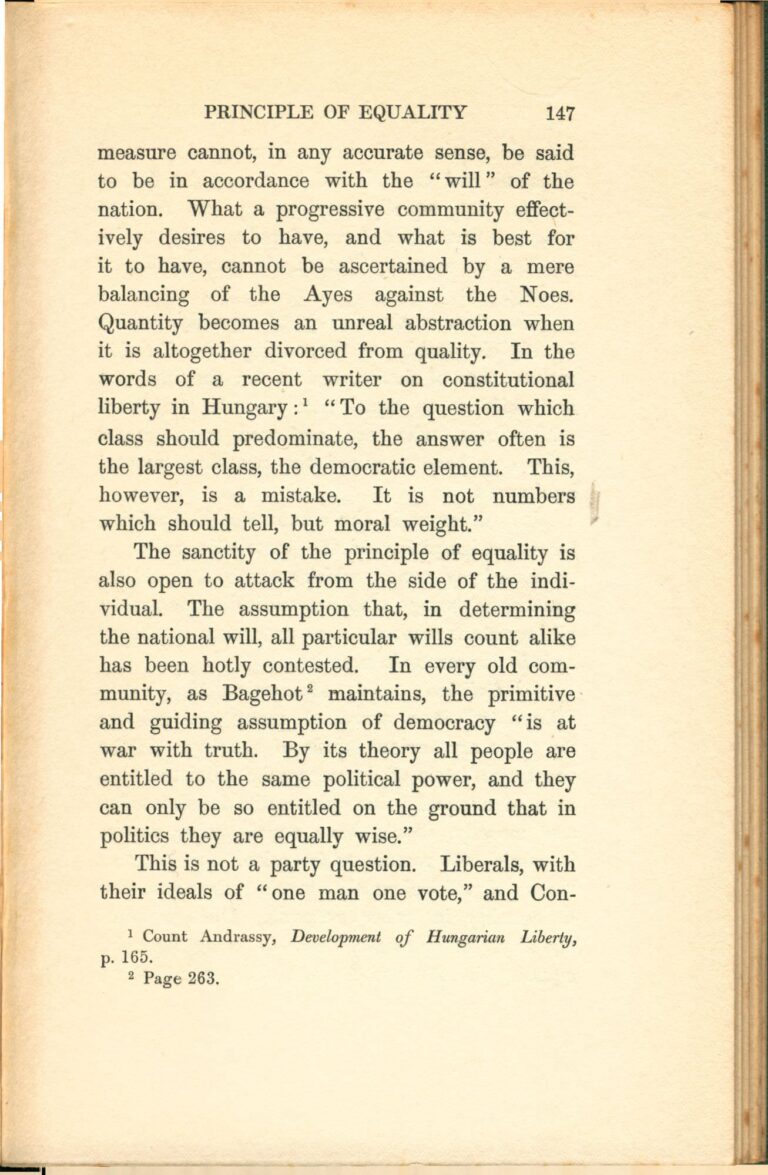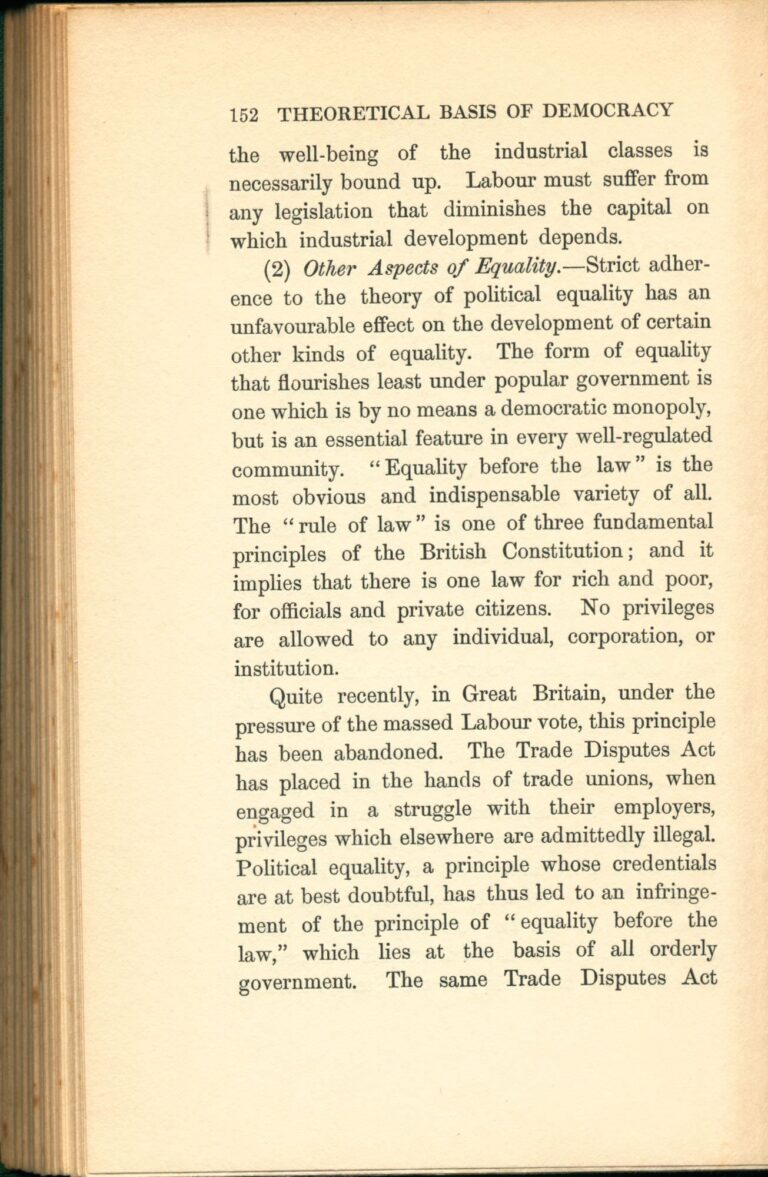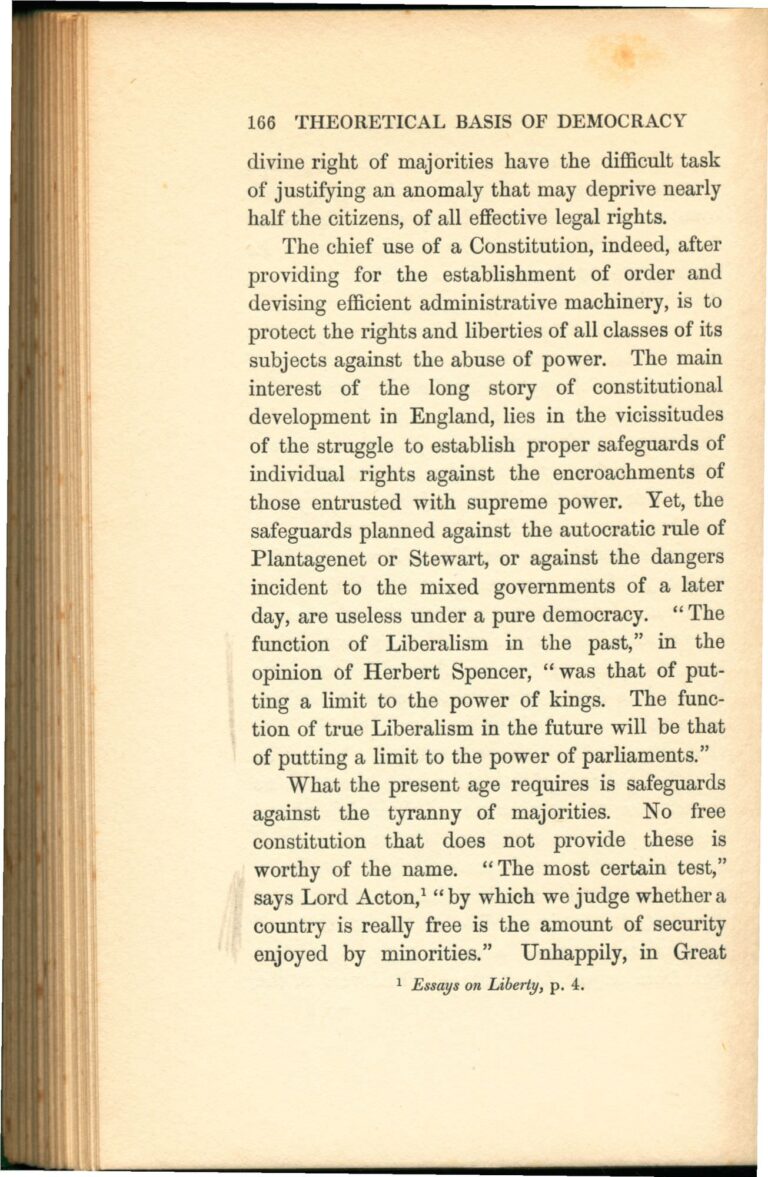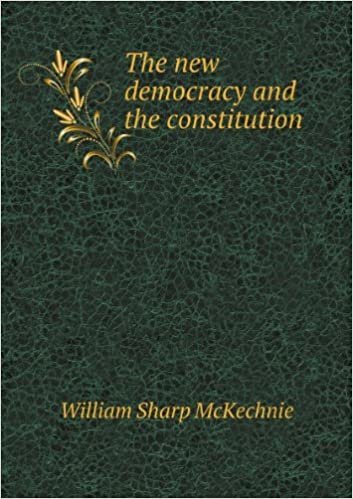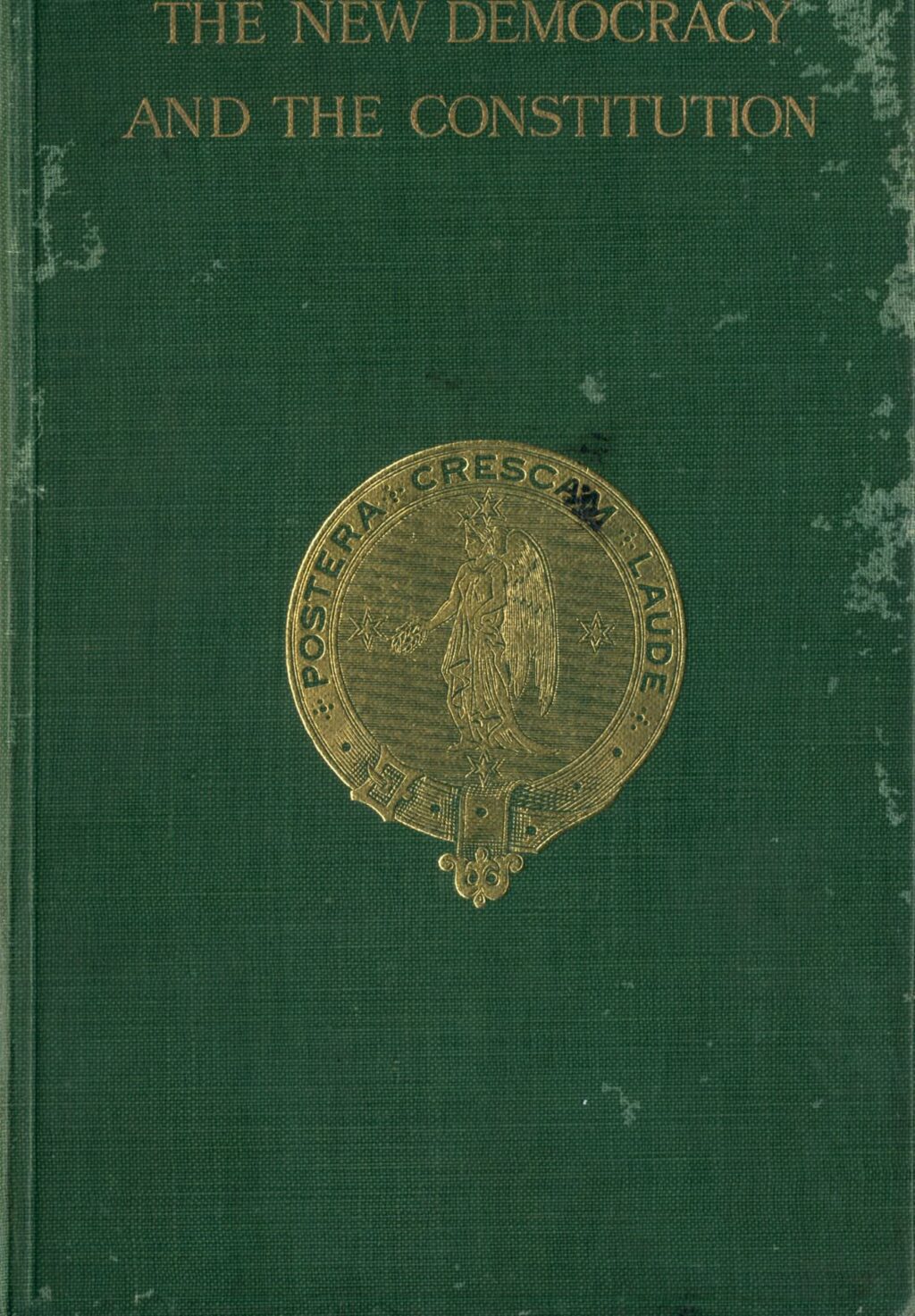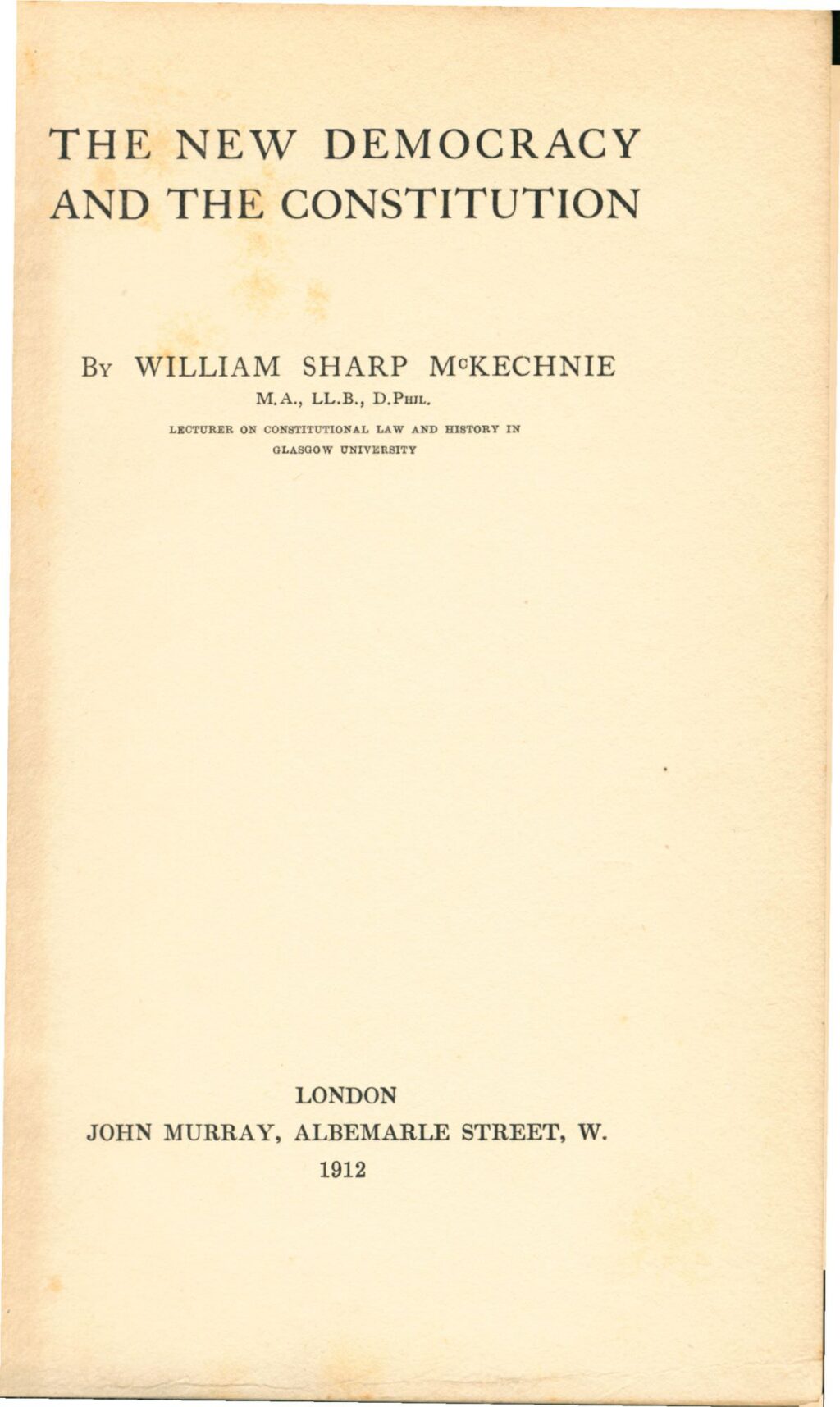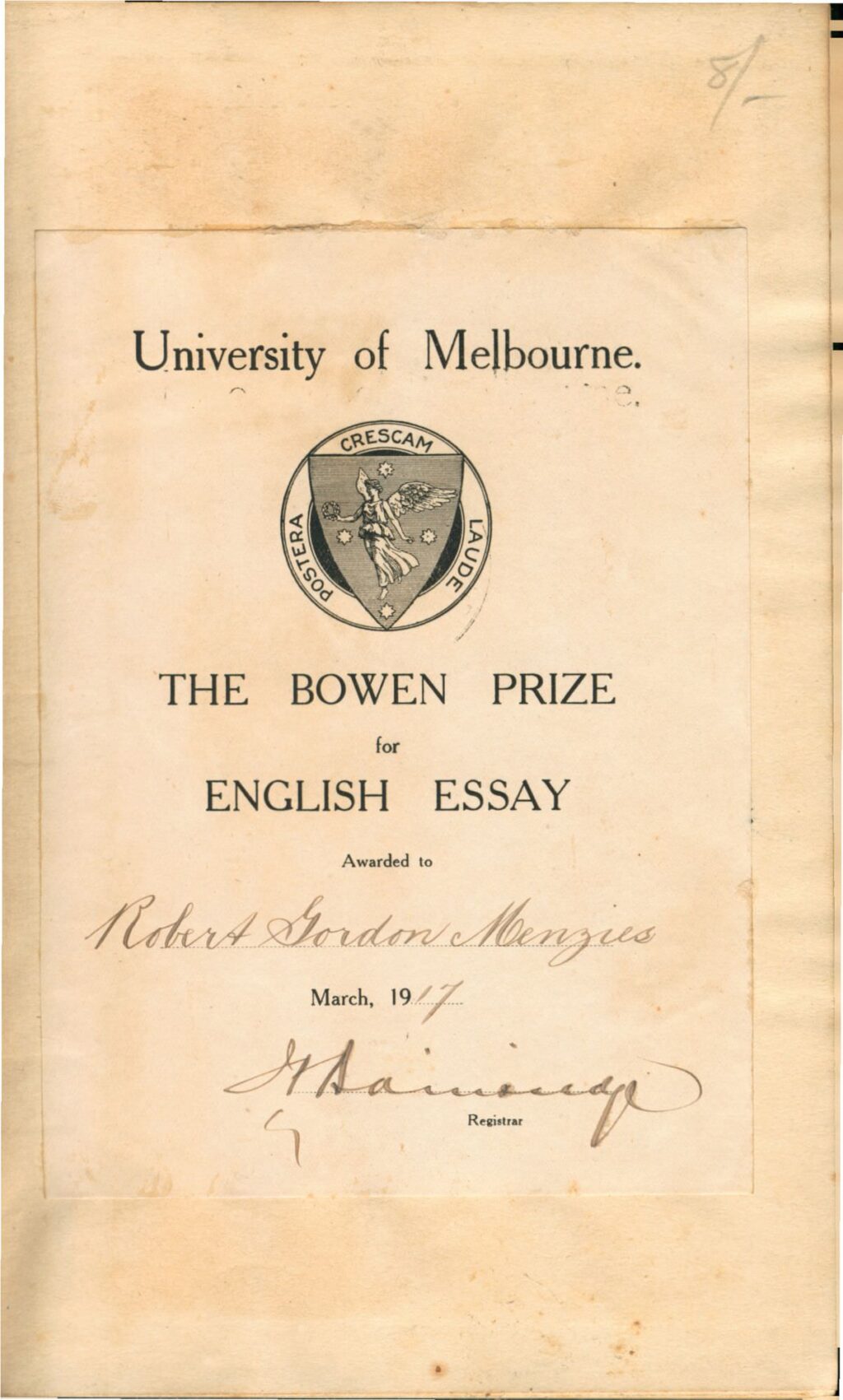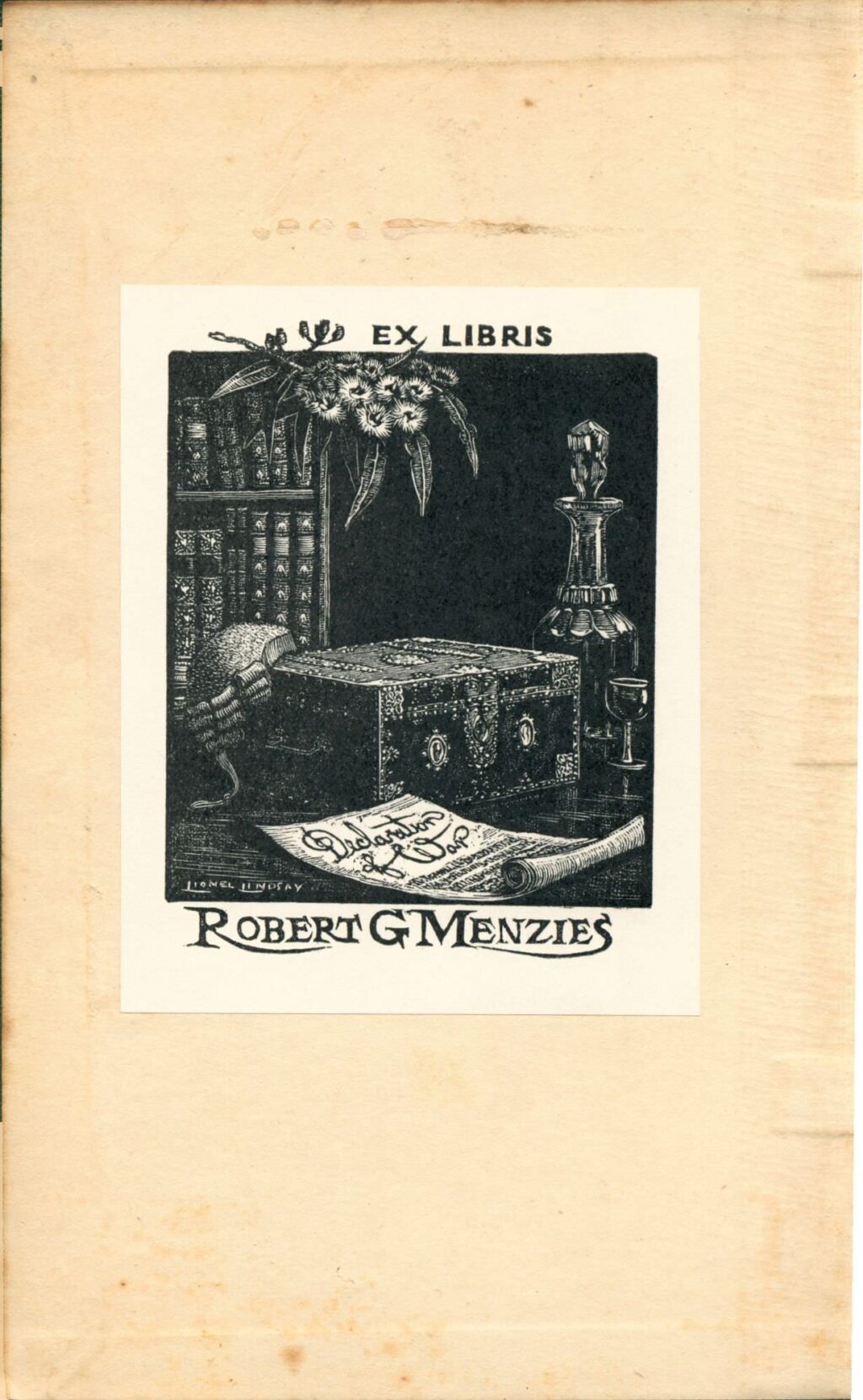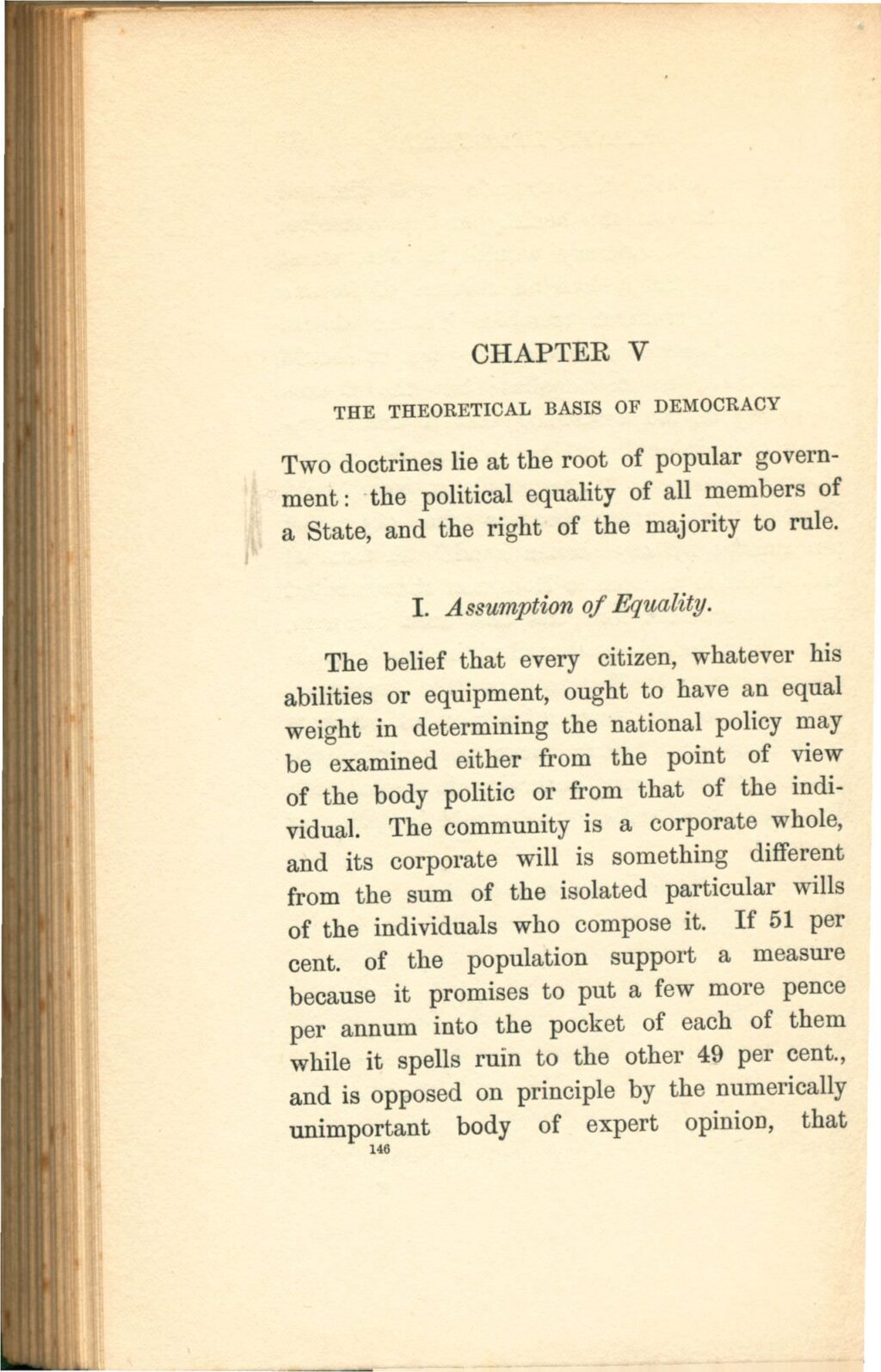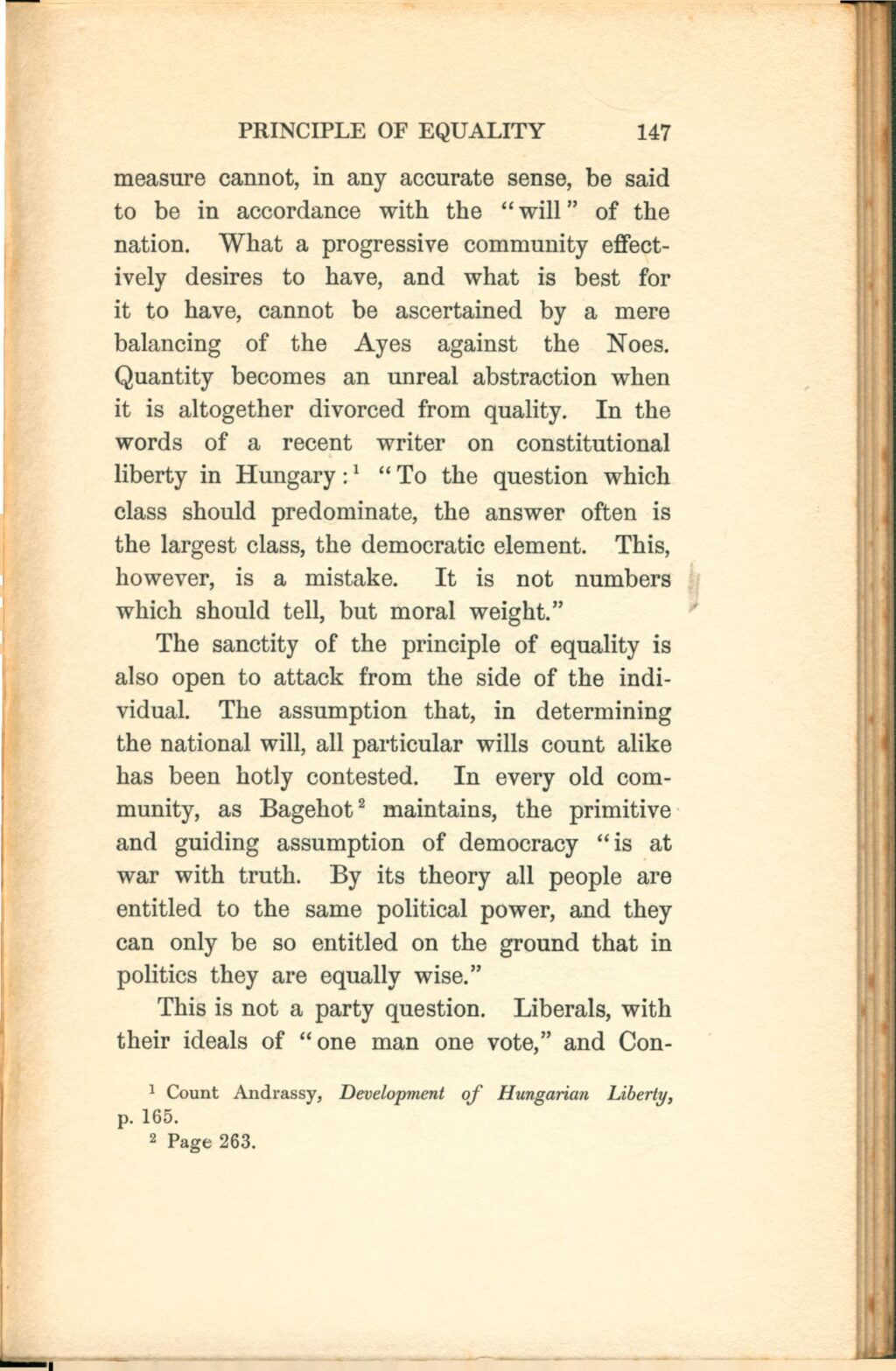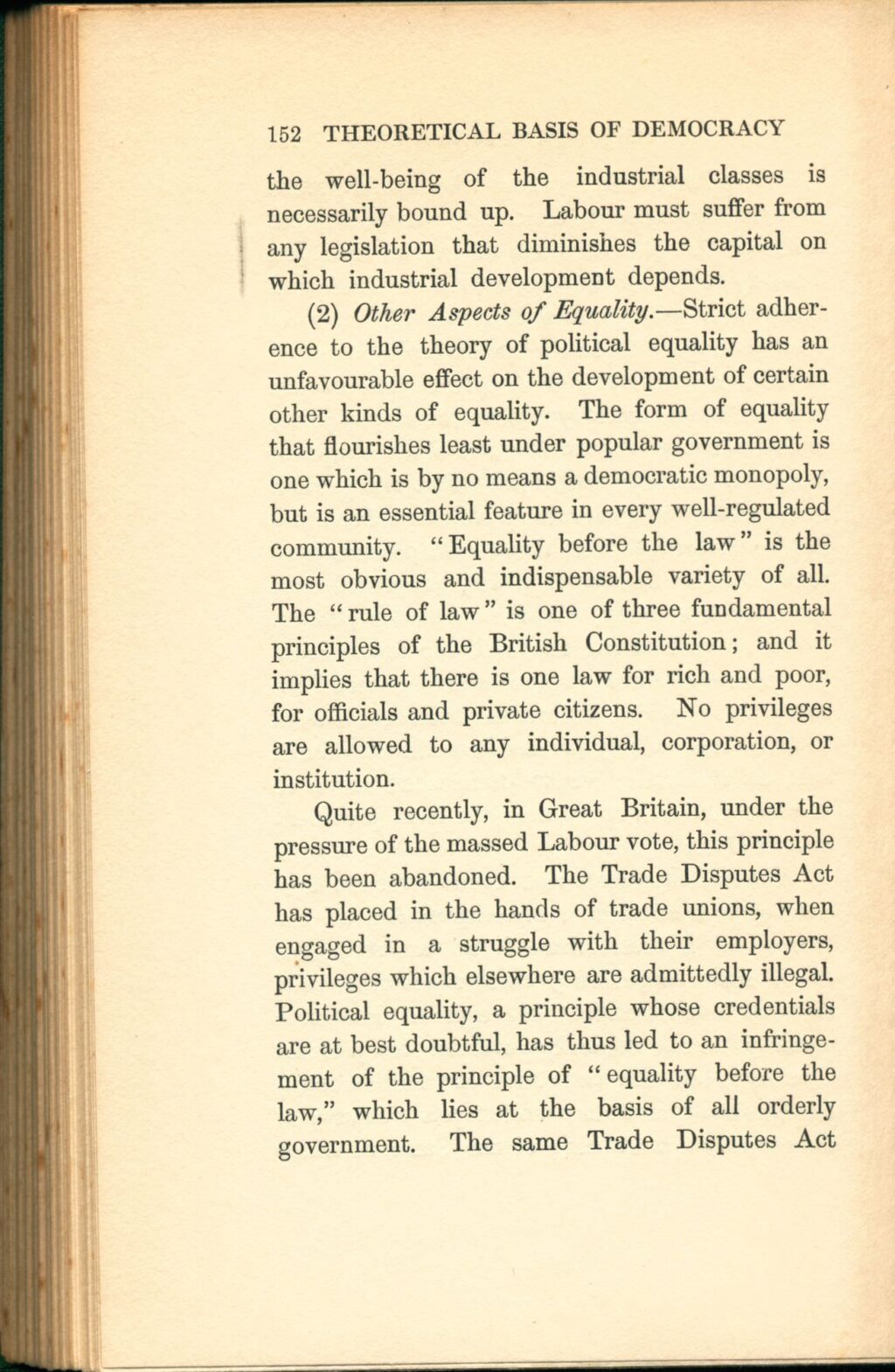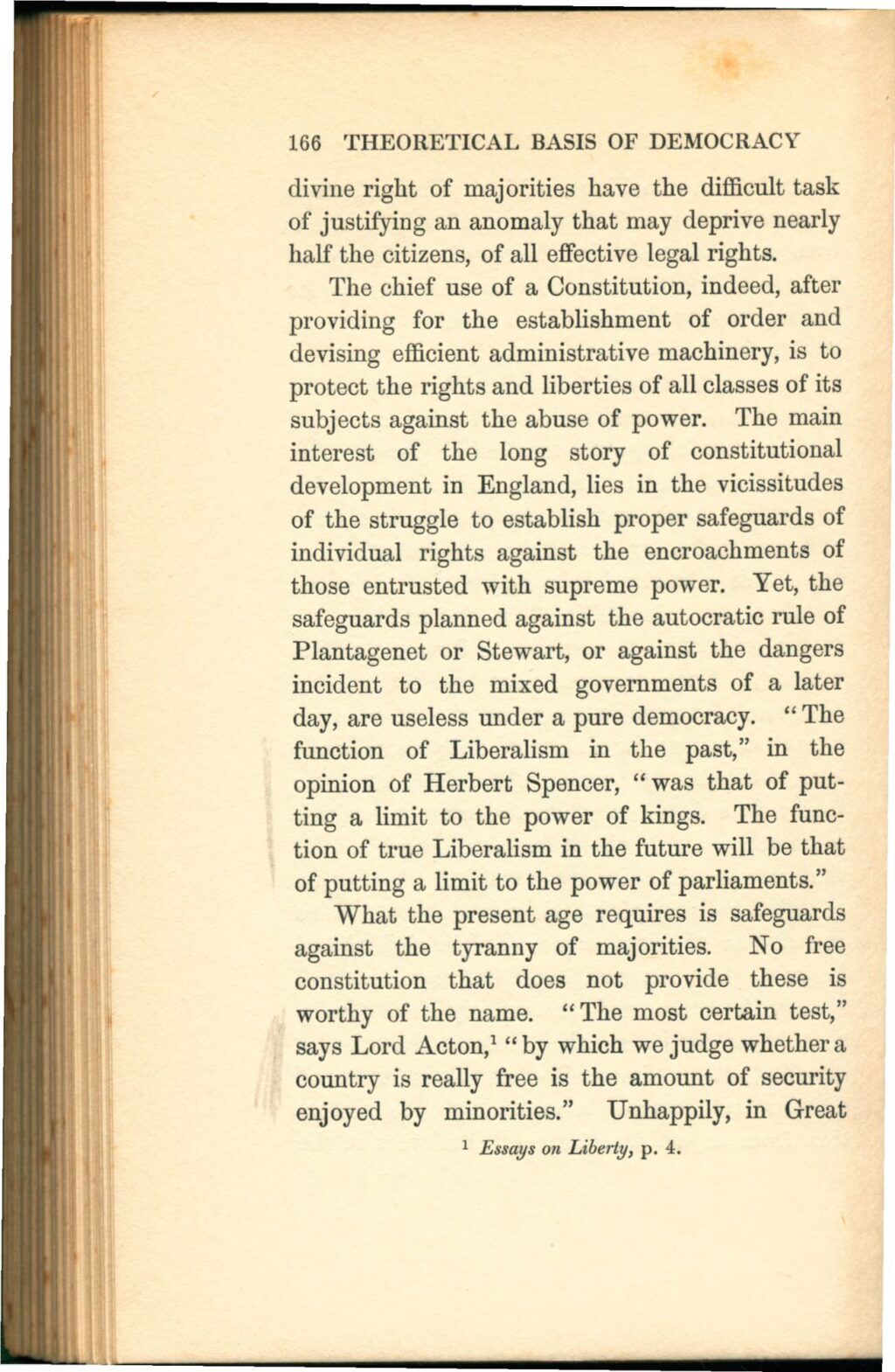| Entry type: Book | Call Number: 2072 | Barcode: 31290036130102 |
-
Author
McKechnie, William Sharp
-
Publication Date
1912
-
Place of Publication
London
-
Book-plate
No
-
Summary
Inscription: March 1917.
-
Edition
First
-
Number of Pages
211
-
Publication Info
hardcover
Copy specific notes
Bookplate inserted; University of Melbourne crest and motto (‘Postera crescam laude’) on front cover; University of Melbourne presentation slip affixed to front endpaper: “The Bowen Prize for English Essay Awarded to Robert Gordon Menzies, March 1917. Registrar [Signed] J. Bainbridge”; stamped in purple on front endpaper: “ROBERT G. MENZIES, Barrister-at-Law”. Various highlights made in pencil throughout text including: [p. 3, underlined] “this spirit of meek prostration before “the people’s will” is the quintessence of modern democracy.”; [p. 8] “Absolute equality, irrespective of moral worth, of services to the community, or of fitness for civic life, is the fundamental principle of democratic theory”; [p. 20] “If the machinery of the State – the Parliament and the Executive – come to obey the behests of bodies frankly concentrating their energies on the furtherance of their own selfish interests, it is evident that all rival interests must necessarily suffer.”; [p. 23] “That Cabinet has appropriated for its own measures practically the whole time of the House available for legislation. It habitually rules the party majority, on whose favour it is nominally dependent, with a rod of iron, and hustles through Parliament by means of the “guillotine” whatever measures it pleases, half-discussed or not discussed at all.”; [p. 123] “The politician who advises the sovereign people to sacrifice their own present gratification for the benefit of posterity will have a short career.”; [p. 124] “Candidates, who take their chances of election seriously, must do more than merely colour facts to please their audience; they must promise more tempting gifts than their opponents.”; [p. 126] “The contest, once entered on, is obviously one in which the prize must always go to the most incautious and the most unscrupulous. Sound national finance becomes impossible.”; [p. 127] “The wholesale method of buying votes is far more effective than the older, timid methods which penal statues were effectual to restrain. It is also more ingenious, for the money needed to undermine the integrity of the electors is derived not from the pockets of those who profit by it, but from the national purse.”; [p. 130] “So sweeping an extension of the province of the Legislature may be fraught with grave consequences. Once the principles of a minimum wage fixed by Parliament has been conceded, few wage-earners are likely to cast their votes for the party promising an increase of only 3d in the day’s wage as against the party willing to authorise a halfpenny more.”; [p. 134] “Capital will not accumulate in the pockets of the artisan or small trader, if he is taught that those who spend and afterwards rely on the eleemosynary grants of a philanthropic [p. 135] State, do better for themselves than those who rely on their own forethought and energy [. . .] Democracy not only frightens capital from the country, but squanders part of what is left at home.”; [p. 136] “What effects are likely to be produced on those habits of saving and self-denial, on which the accumulation of capital depends, by the expectation that the needy will be sympathetically relieved of the consequences of their own improvidence?”; [p. 139] “If a better, hardier, more self-reliant race of men is to be reared to take their fathers’ places in the next generation, then there is less need to scan with miserly care the anticipated bill of costs [. . .] A healing ointment is provided for every smart by the nation’s accredited almoners, at the expense of the prudent and well-behaved. Depending on the community for the education and even for the food and clothing of the children he has brought into the world, ensured by Act of Parliament against sickness, unemployment, and all the vicissitudes of life at his employer’s and the State’s expense, entitled to heavy damages for injuries caused by his own carelessness, and with an absolute claim to a pension in old age, the individual is relieved [p. 140] of most responsibilities of life.”; [p. 141] “When a man is relieved of his own natural responsibilities, he is emptied of the qualities that make for manhood – of independence, initiative, self-control, self-reliance, and self-sacrifice. If the destruction of these characteristics is the sole return to the State for its lavish expenditure, democratic legislation is doing worse than merely wasting the material wealth of the community : it is undermining the national character.”; [p. 146] “Two doctrines lie at the root of popular government: the political equality of all members of a State, and the right of the majority to rule.”; [p. 147] “To the question which class should predominate, the answer often is the largest class, the democratic element. This however, is a mistake. It is not numbers which should tell, but moral weight.”; [p. 152] “Labour must suffer from any legislation that diminishes the capital on which industrial development depends.”.
Related entries
You might also like...
Sign up to our newsletter
Sign up for our monthly newsletter to hear the latest news and receive information about upcoming events.

